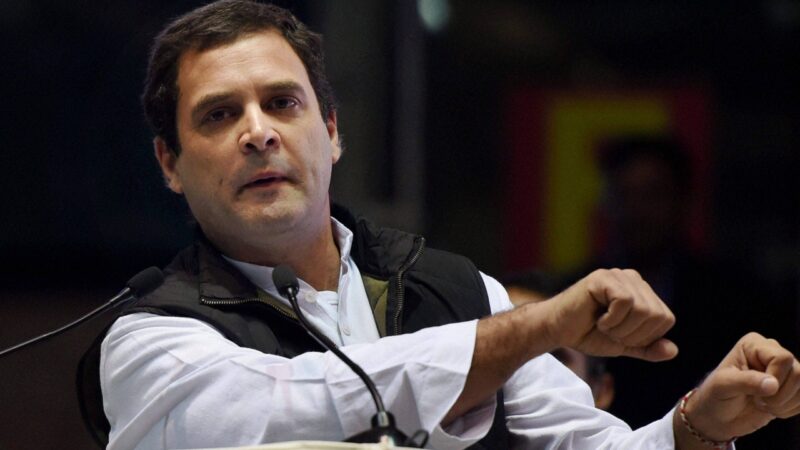
Congress Leader Rahul Gandhi Finds Silver Lining in Disqualification from Lok Sabha, Sees “Huge Opportunity” to Serve People
- Latest News
- June 1, 2023
Stanford University, California: Rahul Gandhi, a prominent leader of the Indian National Congress, revealed during his ongoing US tour that his disqualification from Lok Sabha, the lower house of the Indian Parliament, came as an unforeseen development to him. However, he expressed that this setback has presented him with a “massive opportunity” to serve the people.
Gandhi, who represents the Wayanad constituency in Kerala, was disqualified from Lok Sabha earlier this year following a conviction in a 2019 criminal defamation case for his “Modi surname” remark by a Surat court. Speaking to a gathering of Indian students at Stanford University, Gandhi shared his thoughts on the matter.
Recalling his entry into politics in 2000, Gandhi admitted that he could never have anticipated the challenges he would face. The current political landscape, according to him, far exceeds anything he had envisioned when he first ventured into this field.
Reflecting on his disqualification as a Member of Parliament, the 52-year-old leader stated that such an outcome had not been within the realm of his imagination. However, he went on to explain that he now views this situation as an immense opportunity, potentially greater than what he would have had otherwise. Gandhi acknowledged the dynamics of politics and its unexpected turns.
“The real drama began around six months ago. The entire opposition in India is grappling with significant financial dominance and institutional capture. We are fighting to uphold democracy in our country,” Gandhi remarked. In response to these challenges, he embarked on the “Bharat Jodo Yatra” (Unite India Journey) to connect with the people.
During his interaction with Indian students and academicians of Indian origin, Gandhi expressed his intention to establish a bond with the younger generation and engage in meaningful conversations. He asserted his right to communicate with them, emphasizing that their fight is his fight. Furthermore, he clarified that his frequent international visits are not intended to seek support from foreign entities.
In an intriguing exchange, Gandhi questioned why the Indian Prime Minister had not visited Stanford to engage with the students and academicians, garnering applause from the packed auditorium. The moderator responded by extending an invitation to the Prime Minister to visit Stanford and interact with the students and scholars.
Due to the overwhelming response, some students were unable to gain entry to the event as the auditorium had reached maximum capacity. The enthusiasm was evident as students had queued up for two hours before the program’s commencement.
Over the past year and a half, several Indian ministers have engaged in similar interactions with Indian students, fostering a meaningful exchange of ideas and perspectives.


